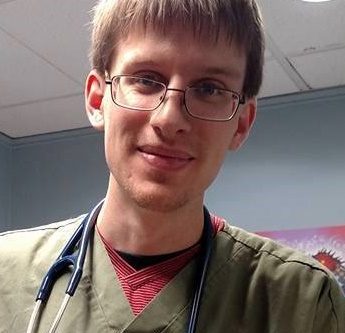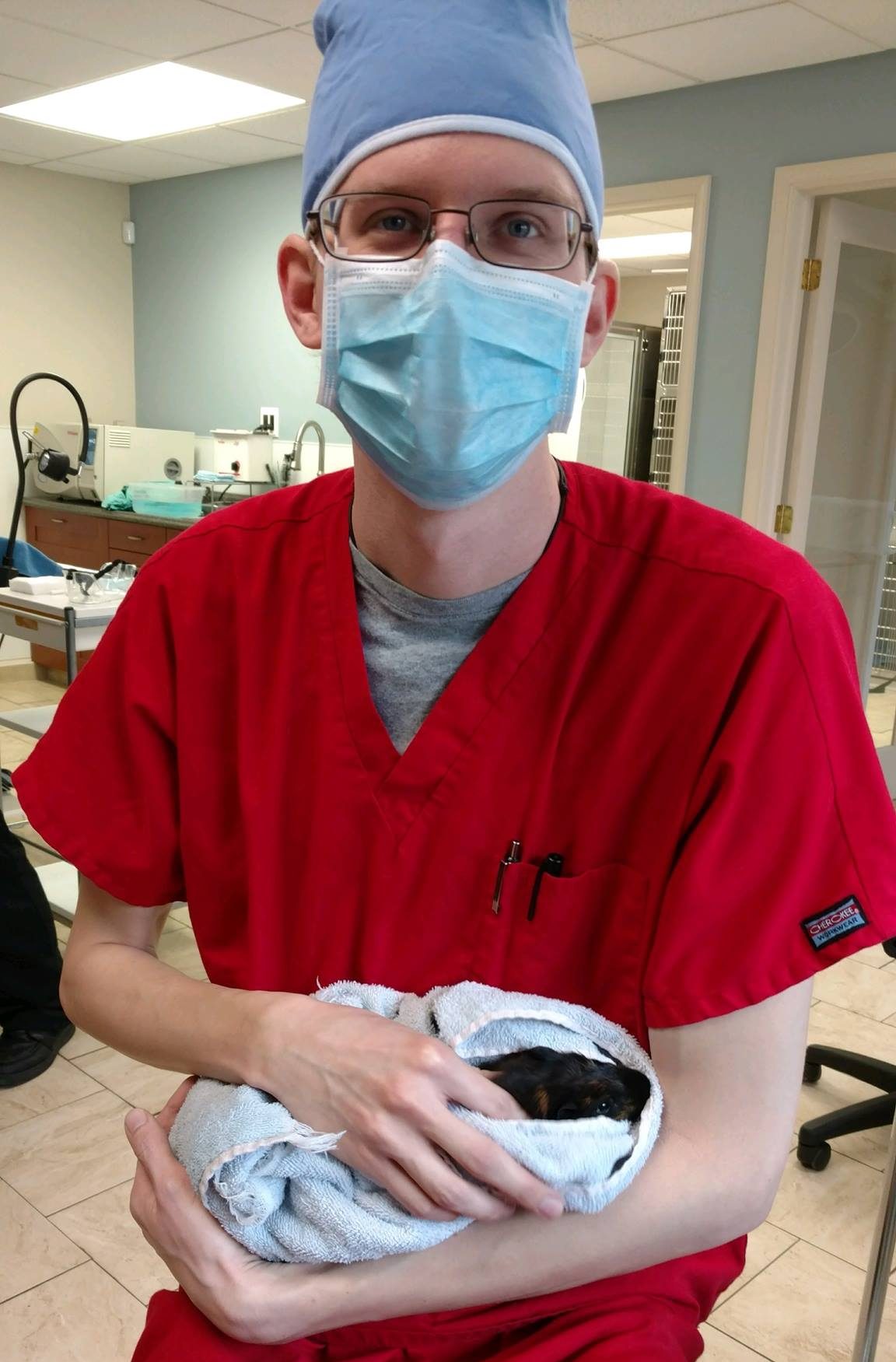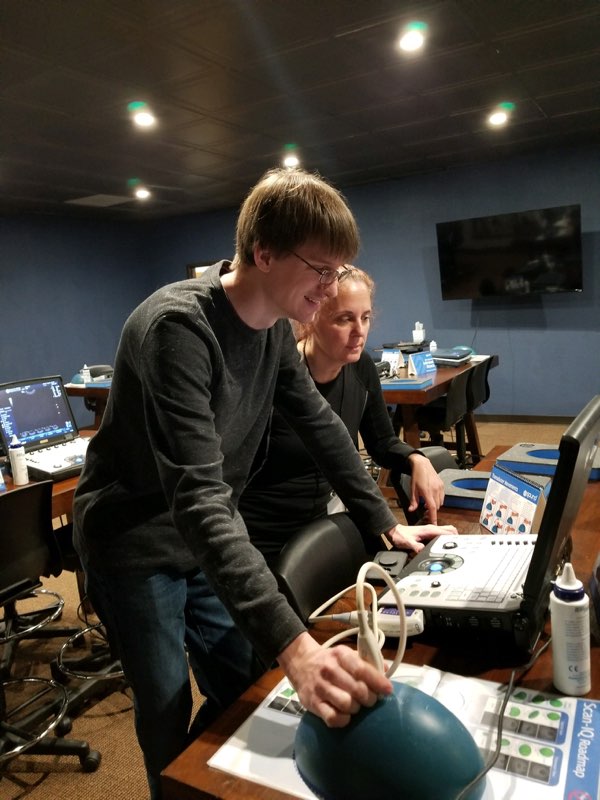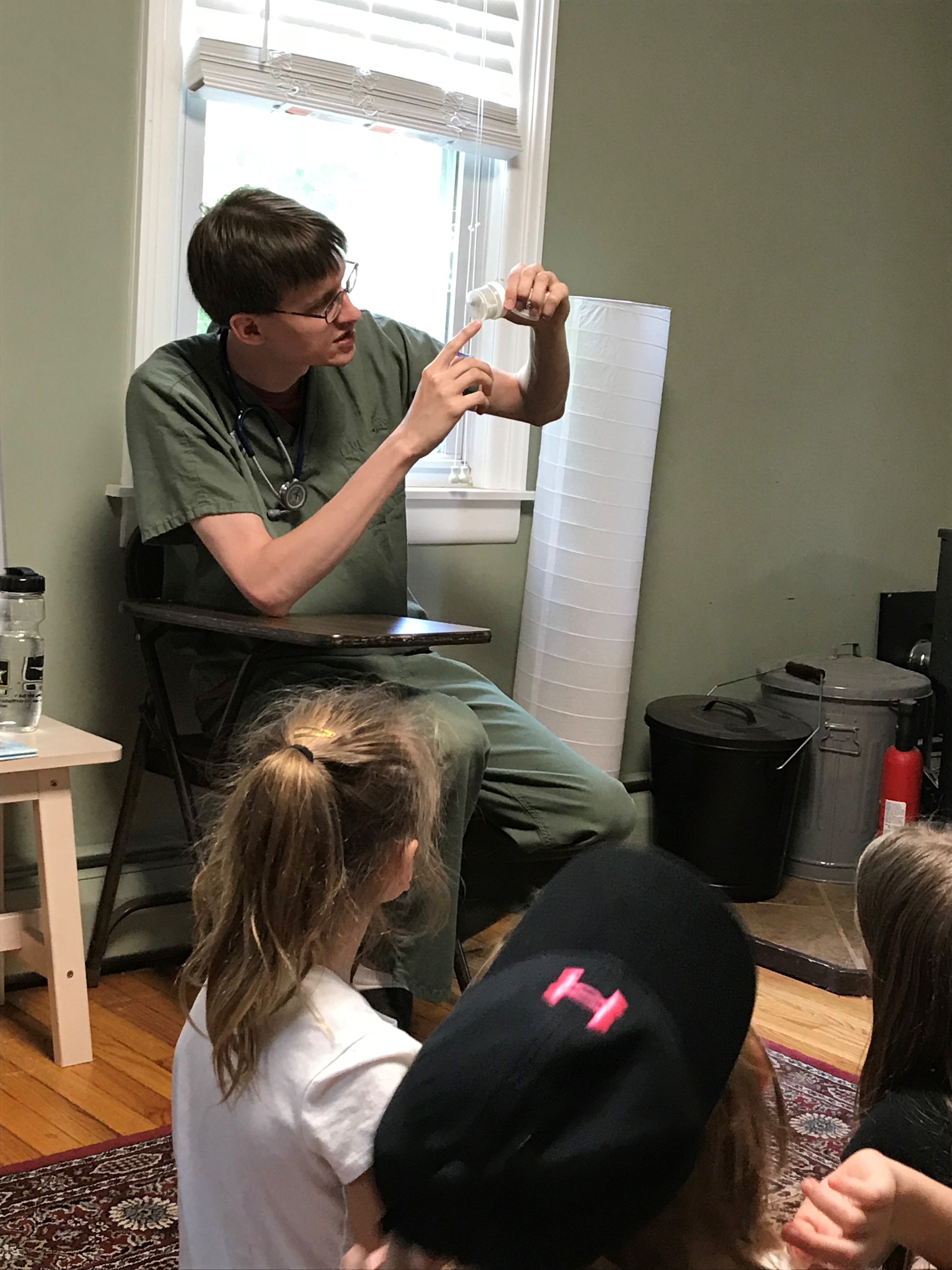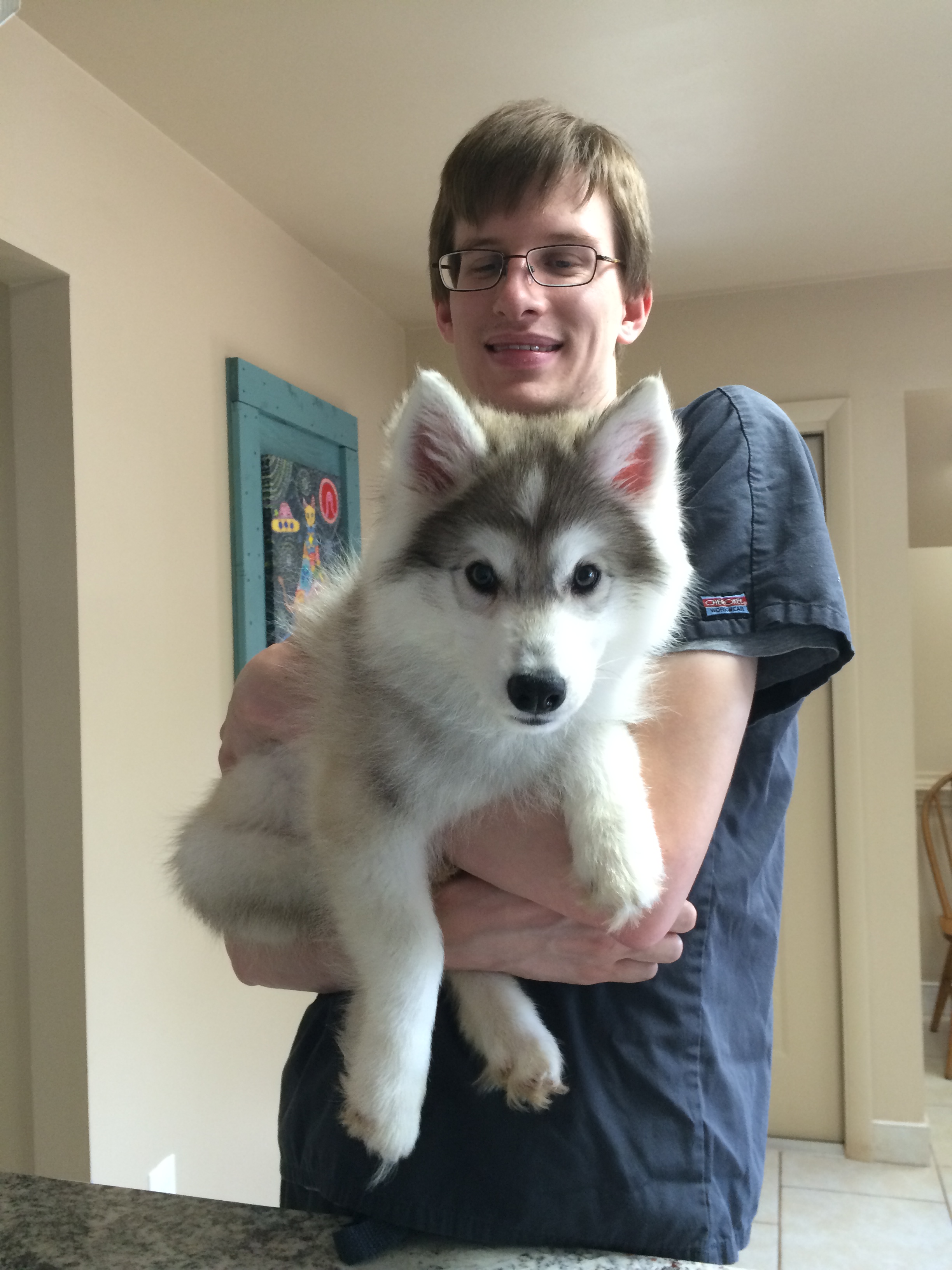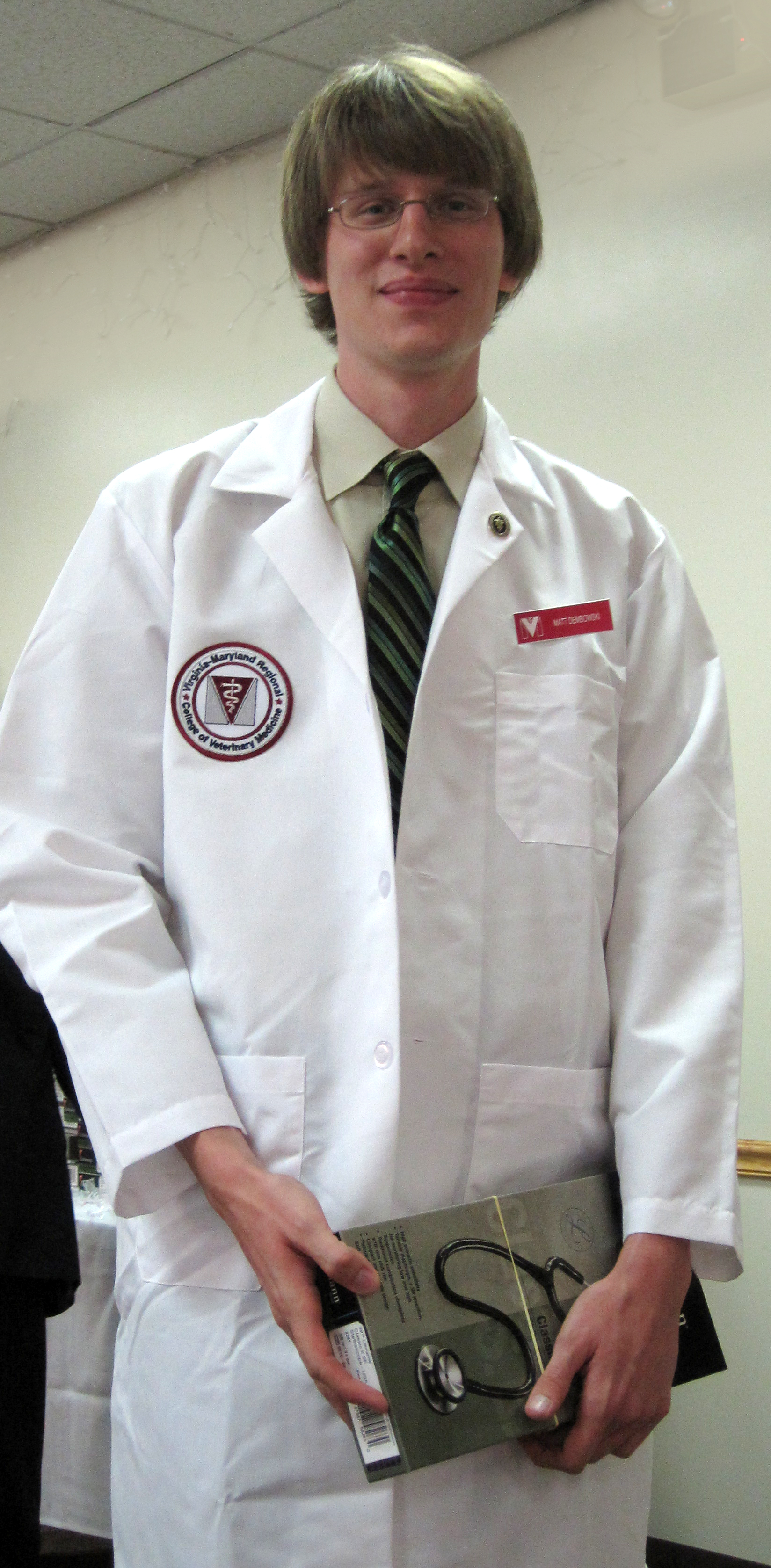Dr Matthew Dembowski joined HousePaws in 2014, and has recently assumed the position of Medical Director of the HousePaws Atco hospital. In this One-On-One interview, we’ll get to know Dr Matt a little bit better as a practitioner and person, and what led him to his role at HousePaws.
Q: You are a South Jersey guy with roots in HousePaws’ service areas. Did you have an interest in animal care when you were growing up? Was there a moment or event in your youth that led you to your career as a veterinarian? Is there anything you’d do differently or suggest to kids today who are considering a path in the veterinary field?
A: I’ve been around animals my entire life. When I was a kid, my family always supported and nurtured my love of animals. Growing up, we always had a menagerie of pets including dogs, cats, reptiles, rodents, birds, and even horses. I was the kind of kid who would catch a frog/snake/fish/bug and bring it home to keep as a pet for a few days before releasing it again. Even in college, I kept a cohort of lab mice in my dorm room (which was against dorm rules), just to have that familiar sense of having animals to care for.
There really isn’t a definitive moment growing up that made me want to be a veterinarian. I just remember always telling people that was what I wanted to be when I grew up, even at a young age. The two most profound influences for my love of animals throughout my childhood were my mother and my great-uncle Don. They were both huge animal lovers and their interactions with animals just imprinted on me as a young child. The way my mother doted on every animal she encountered, or the way all of our pets gravitated toward Uncle Don whenever he came to visit gave me a profound respect for the human-animal bond. I admired the amount of affection and trust that animals had for them, and I wanted to build that bond for myself and expand upon it. Veterinary medicine lets me do that in an incredibly fulfilling way.
I don’t think I would do anything differently, and I would suggest to anyone with an interest in animals to build on that interest as much as possible, especially if they’re considering a career as a veterinarian. Get as much experience with animals as you can! Keep strange and unusual pets, volunteer for a shelter or rescue group, take horseback riding lessons, visit a farm or zoo, raise chickens! Find that one animal or group of animals that fascinates you and learn everything you can about them. Don’t just learn how to care for an animal, but why we care for it, and what it can do for us.
Q: You didn’t study veterinary medicine in the area. Why is that? What brought you back to the area? How did you find yourself at HousePaws as a recent graduate?
A: One of the biggest challenges facing aspiring veterinarians is getting into vet school. There are only a handful of schools in the country and not every state has a dedicated veterinary school. A huge pool of applicants and a limited number of schools means that lots of people apply to veterinary school multiple times before they get in. New Jersey is one of the states that doesn’t have a veterinary school, so I had to be willing to move to go to school. The best advice I was given when applying was not to limit where I applied and to go no matter where I got accepted, even if it wasn’t my first choice. I applied to a bunch of schools and only got into one on my first try, so it wasn’t a tough choice for me.
After 4 years at vet school in Virginia, we moved back to the area to be closer to family. Before going to vet school, I spent some time working as a camp counselor for Camp Bow Wow in Cherry Hill, and they’re actually the ones who helped me find HousePaws. My prior boss found out that I was in the area looking to start my career as a veterinarian, and knew that HousePaws was looking for new doctors, so she told Dr. Lisa about me! I had actually met Dr. Lisa once while working for Camp Bow Wow, when she first started out as a mobile vet! Most of the practices I interviewed with were less interested in hiring a new graduate, but HousePaws was more than willing to take on the challenge and offered great mentor-ship.
Q: Mobile veterinary practice is becoming more common, but it isn’t yet the norm. Did you feel joining a mobile practice was a career risk? Why did you choose it, and what are your thoughts about practice on the road versus a hospital location? What has surprised you about mobile practice?
A: The thought of a mobile veterinary practice being a career risk hadn’t even occurred to me. Both human and animal doctors used to do house calls in the 1900’s, and while the reinvention of mobile companion animal practice is still a relatively new concept, large animal veterinarians have been working on the road since veterinary medicine was in its infancy. At vet school, I got to experience large animal mobile practice first hand and it felt completely natural, even though my primary experience was with small animal brick-and-mortar practices. When I met the HousePaws team for the first time, I was inspired by their enthusiasm for what they were doing, and their dedication to their clients and patients. I also couldn’t help but be impressed by the growth of their company. When I had met Dr. Lisa in 2010 at Camp Bow Wow, she was working by herself out of the back of her car. Flash forward four years and HousePaws had a state-of -the-art hospital, a small fleet of trucks, and were looking to hire me as their 7th doctor! It was an easy decision for me.
I found starting off my career with a mobile practice both challenging and rewarding. I had a great group of doctors who supported and mentored me, while I honed my skills as a new doctor on my own. Being on the road is logistically challenging, and forces you to adapt and work in ways that you might not even consider while working in a hospital. I’m constantly surprised by how much we can accomplish on the road compared to a regular hospital. With mobile x-rays, ultrasound, and cold-laser, we can do so much for our patients without them having to leave the house. Its also incredibly rewarding how grateful our clients (and patients) are for the service we provide.
Q: Do you have any areas of specialization or interest in the veterinary fields? Are there any upcoming methodologies of treatment that you find exciting or particularly promising?
A: I recently completed an introductory course in ultrasound, and have been building on that experience as much as possible. I would love to continue that training and get more experience application of ultrasound as a diagnostic and treatment tool. I also love doing surgery, and try to learn new surgical techniques and procedures when I can. Part of being a vet means doing a little bit of everything, which I really enjoy, so I haven’t considered any specific specializations so far. I’m always open to new treatment modalities for my patients. Every pet is different, and having different ways to approach working with and treating each animal is part of what makes my job so interesting.
Q: What does the human/animal bond mean to you? How do you see it and understand it in your work? Has your understanding of it changed in your years of practice?
A: Defining the human/animal bond is no small feat. The bond between humans and animals can vary greatly from person to person and animal to animal. Animals can provide us with companionship, therapy, service, entertainment, food, even revenue. I don’t mean for any of these terms to sound callus or insensitive, its just shows how wide of a role animals can play in our society. Even in the dogs and cats that I work with on a daily basis, there is an immense variation in that bond. Every animal has to be approached and treated slightly differently. Personally, I find a sense of responsibility and reward in caring for animals. The trust and devotion that you can earn from an animal and the sense of joy they can provide is immeasurable. I love how animals can make us laugh, think, and even cry. I get to advocate for the health of pets while educating their owners to help them make the most of their own personal human-animal bond, and my understanding of that bond is constantly changing with every patient that I treat.
Q: Being a veterinarian is known to be among the more stressful professions given the close proximity to animal and human suffering, including regular exposure to end of life care. Student debt that accompanies a veterinary degree is also a pressure that many people are not aware of. How do you take care of yourself and unwind after a tough day? Do you have hobbies?
A: This is absolutely true. Being a vet can be mentally, physically, and emotionally straining. We also tend to start our careers with more student debt and lower salaries compared to physicians/MDs. Learning to cope with these stressors is part of learning to be a vet. I owe a lot of thanks to my wife for the sacrifices shes made and the support shes provided through my time in vet school throughout my time with HousePaws. I also find comfort in my own animals, who always help me smile after a long day. Finding a good work/life balance is never easy, but making time for family, friends, and self is important. Little things like taking my dogs for a walk, cooking a homemade meal, or even doing the dishes can help take my mind off of a particularly tough day, even though they may just seem like additional work at the time. I’m also an avid gamer and love to play video games, board games, and puzzle games, either competitively or cooperatively. I’m a pretty big nerd who loves sci-fi/fantasy, food, camping/hiking, paintball, and of course animals!
Q: If there was a single thing that you would recommend your clients do for their fur babies, what would it be?
A: Bring your pets in before they get sick! Annual and biannual wellness visit are so important for the well being of you pets. Regular visits to your vet are the perfect time for us to make sure pets are healthy, update their vaccines, discuss preventative care/lifestyle, and detect diseases or problems early so we can keep you pets healthy.
